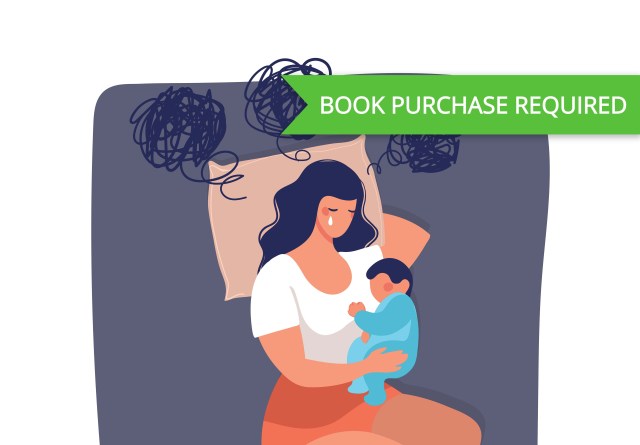Course Summary
Practice Level: Intermediate
Postpartum depression is hard on a marriage. Therapists can find themselves face-to-face with marriages that are suffocating, as if the depression has sucked the life out of a relationship that was only prepared for the anticipated joy of pending childbirth. What happens to marriage? Why do couples become angry, isolated, and disconnected? Tokens of Affection looks closely at marriages that have withstood the passing storm of depression and are now seeking, or in need of, direction back to their previous levels of functioning and connectedness. The reader is introduced to a model of collaboration that refers to 8 specific features, which guide postpartum couples back from depression. These features, framed as “Tokens,” are based on marital therapy literature and serve as a reminder that these are not just communication skill-building techniques; they are gift-giving gestures on behalf of their relationship. A reparative resource, Tokens of Affection helps couples find renewed harmony, a solid relational ground, and reconnection.
Course Format
This course is based on a book that can be purchased here and a posttest. When you’re ready, purchase the test by clicking the “Add To Cart” or “Enroll” button. This will let you take the test and receive your certificate for CE credits.
Learning Objectives
- Define a “Token”
- Discuss gender differences in connecting
- Explain challenges that have the potential to disrupt marital stability
- Describe the dangers of “Keeping Score” in a relationship
- Explain the benefits of laughter in a relationship
- Discuss the role of forgiveness
Course Syllabus
- Your Current Married State
- When Depression Descends
- The Connection
- Secrets of a Successful Marriage
- The Tokens
- Connection Strategies
- Token of Esteem
- Token of Collaboration
- Token of Compromise
- Token of Selflessness
- Token of Sanctuary
- Token of Expression
- Token of Tolerance
- Token of Loyalty
- Bumps in the Road
Authors
Karen Kleiman, MSW, LCSW
Karen Kleiman, MSW, LCSW is the founder of the Postpartum Stress Center, LLC, The Karen Kleiman Training Center, LLC, and an international expert on the topic of postpartum depression and anxiety. She has been treating pregnant and postpartum women and their families for over 36 years and offers advanced post graduate training to clinicians in this area.
Amy Wenzel
Amy Wenzel, PhD, ABPP, is owner and director of the Main Line Center for Evidence-Based Psychotherapy. She is the author or editor of 24 books and treatment manuals and has authored over 100 peer-reviewed journal articles and book chapters and has been featured in many video demonstrations published by the American Psychological Association. She has held faculty positions at the University of Pennsylvania School of Medicine, the University of North Dakota, and the American College of Norway. Her research has been funded by the National Institutes of Health, the American Foundation for Suicide Prevention, and the National Alliance for Research on Schizophrenia and Depression (now Brain & Behavior Research Foundation). She is on the Scientific Advisory Board of the American Foundation for Suicide Prevention and the editorial boards of Cognitive and Behavioral Practice and the Journal of Rational-Emotive and Cognitive-Behavior Therapy.
Accreditation Approval Statements
CE4Less.com is approved by the American Psychological Association to sponsor continuing education for psychologists. CE4Less.com maintains responsibility for this program and its content.
CE4Less.com has been approved by NBCC as an Approved Continuing Education Provider, ACEP No. 6991. Programs that do not qualify for NBCC credit are clearly identified. CE4Less.com is solely responsible for all aspects of the programs.
Courses have been approved by CE4Less.com, as a NAADAC Approved Education Provider, for educational credits. NAADAC Provider #91345 CE4Less.com is responsible for all aspects of the programming.
We are committed to providing our learners with unbiased information. CE4Less never accepts commercial support and our authors have no significant financial or other conflicts of interest pertaining to the material.


